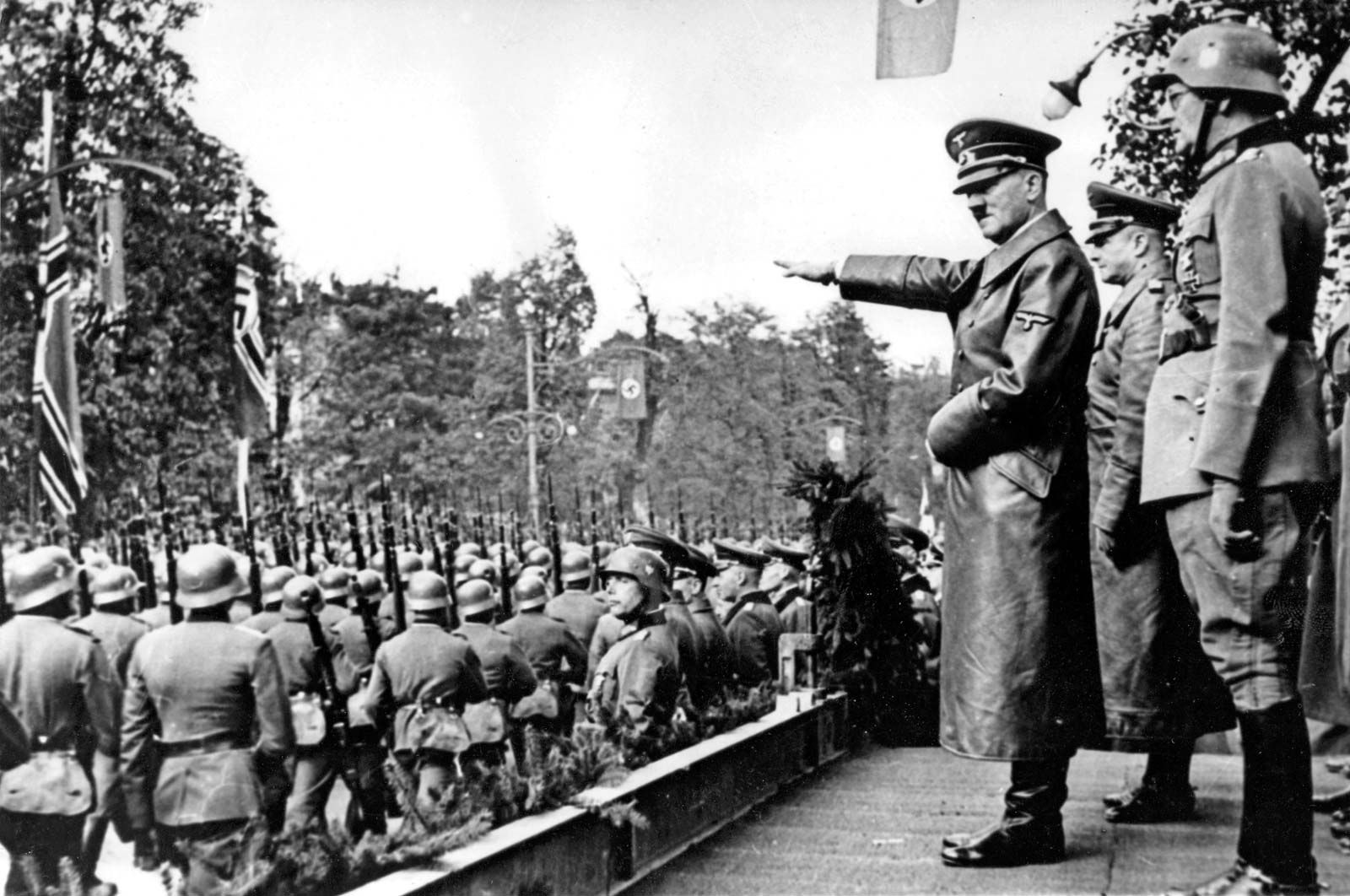Hitler’s first weeks in power were devoted to transforming his chancellorship into a dictatorship. He dissolved the Reichstag and called for new elections.
During the campaign, opponents of the Nazis were intimidated by violence and threats and were denied radio time and free use of the press. On the night of February 27, a fire mysteriously broke out in the Reichstag building. When he heard the news, Hitler exclaimed, “Now I have them,” for he knew that the fire could be blamed on the communists.
By the next morning, four thousand Communist party members were arrested, and by noon Hitler had persuaded Hindenburg to suspend the basic rights of the citizenry during the emergency. Arrest, indefinite detention, and terror were now embraced by the state. Germany was, in effect, a dictatorship.
Nonetheless, in the election of March 5 the Nazis won only 44 percent of the votes, which gave them 288 seats in the Reichstag. Using the SA as a constant threat, Hitler bullied the Reichstag. Except for 94 Social Democrats (the Communists were denied their seats), all members voted for an Enabling Act on March 23, suspending the Weimar constitution.

